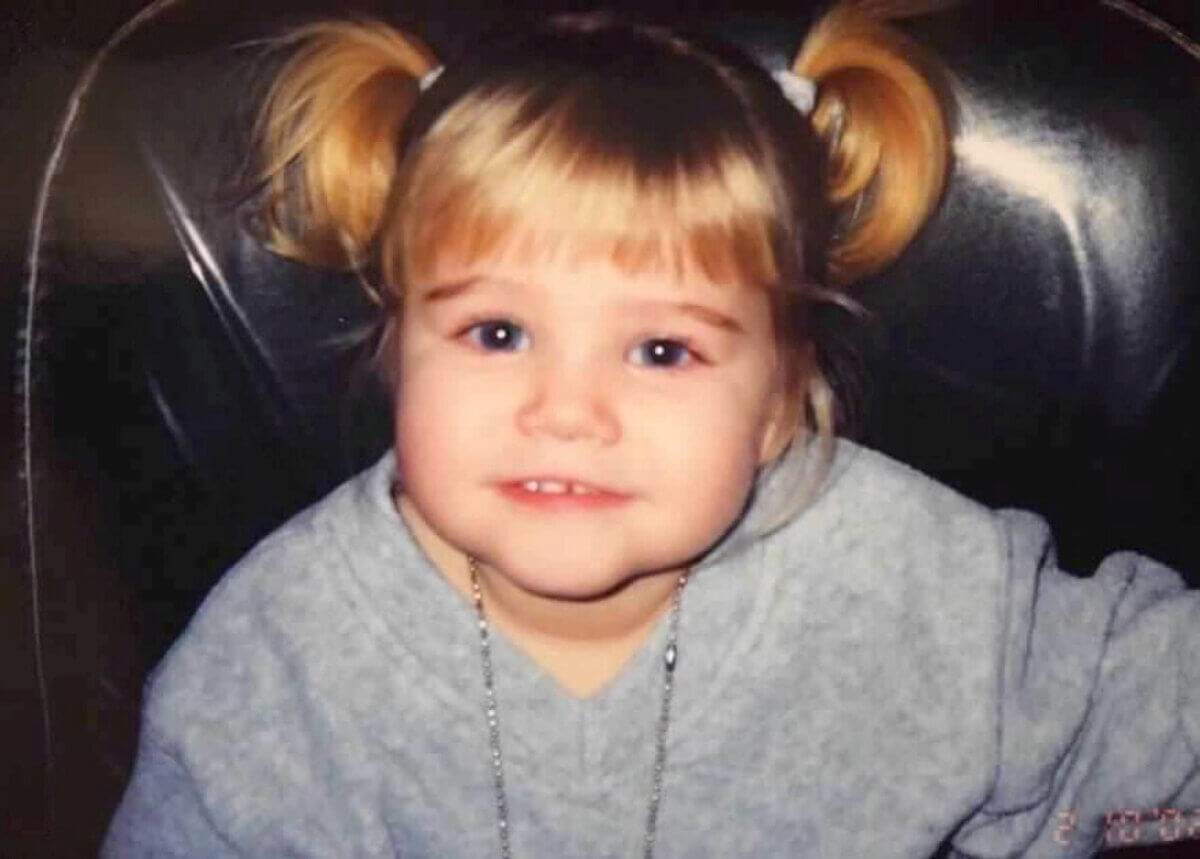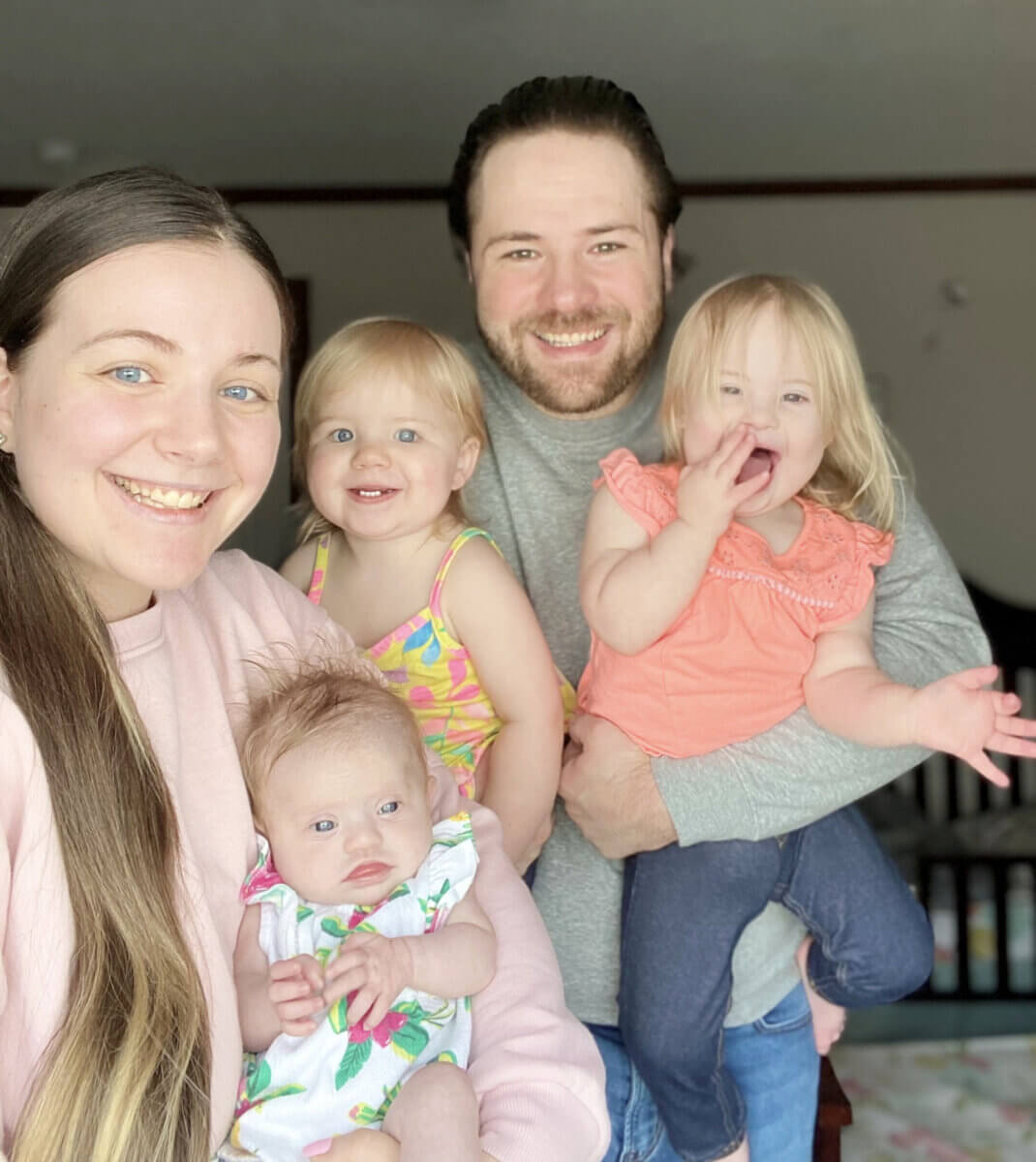When Ashley Zambelli was born, she didn’t display any traits or characteristics associated with Down syndrome.
MACOMB TOWNSHIP, Mich. — A young mother diagnosed with Down syndrome at age 23 says she was unknowingly passing the condition on to her children until doctors finally put the clues together. Even now, however, the woman says people still find it hard to believe she has the disorder. Doctors diagnosed Ashley Zambelli with mosaic Down syndrome in February 2023 after undergoing genetic testing which revealed she has an extra chromosome.
Growing up, Ashley says she would struggle with knee dislocation, jaw issues affecting the movement of her mouth, and an increased heart rate. Doctors never connected the issues until they looked at her reproductive history and saw three of her six pregnancies resulted in a Down syndrome diagnosis.
“People say ‘you don’t look like you have it.’ Even I was in a lot of disbelief,” says Ashley, a stay-at-home mom from Michigan, in an online video post.
“I didn’t know about mosaic Down syndrome. A lot of people associate it as a facial disability. Having a mosaic condition means it is not always visible to the eye.”
When Ashley was born, she didn’t display any traits or characteristics associated with Down syndrome. From the age of 12, her kneecaps would dislocate “all the time” and she struggled with comprehensive learning at school.
“Test taking was awful. I had jaw dysfunction and my kneecaps were constantly dislocating. My shoulder was permanently out of the socket. My heart always racing. I was always getting out of breath,” the 23-year-old explains.

Doctors were never able to connect her health issues until she was 23 weeks pregnant with her third child, Katherine, in February 2023 – who was diagnosed with Down syndrome at 14 weeks. Previously, Ashley had a miscarriage in 2019 and doctors discovered the baby also had Down syndrome.
She gave birth to her first child, Lilian, who also has Down syndrome, in December 2020. Her second daughter, Evelyn, who was born in December 2021, doesn’t have the genetic condition.
“They hadn’t seen someone with three confirmed cases of Down syndrome. They said I was really young – so thought there must be something else causing this,” Ashley says in her video.

What exactly is mosaic Down syndrome?
Mosaic Down syndrome, also known as mosaicism, is a less common form of Down syndrome. While individuals with Down syndrome typically have an extra copy of chromosome 21 in every cell of their body, those with mosaic Down syndrome have some cells with an extra chromosome 21 and others with the standard two.
Down syndrome is typically caused by an error in cell division called nondisjunction, which results in an embryo with three copies of chromosome 21 instead of two. Once this occurs, all cells derived from this one will have an extra 21st chromosome.
In mosaic Down syndrome, the nondisjunction error occurs at a point after fertilization, during an early cell division. As a result, only some of the cells have an extra copy of chromosome 21.
The proportion of cells with an extra chromosome varies from person to person and can affect the physical characteristics and the degree of intellectual disability that the individual experiences. Some individuals with mosaic Down syndrome may have fewer characteristics typical of Down syndrome than those with the other types.
However, the health and developmental outcomes for individuals with mosaic Down syndrome can vary quite a bit, making it difficult to predict the course for each individual. They may have all, some, or none of the characteristics commonly associated with Down syndrome, depending on which cells have the extra chromosome and to what extent. For this reason, they may require varying levels of support and intervention throughout their lives.
What does Ashley’s diagnosis mean for her children?
Ashley’s genetic testing, which revealed she has mosaic Down syndrome, gives her a 50-50 chance of having children with an extra chromosome.
“I was very happy to find out,” the mother says.
Her husband, Taylor Doyle, a restaurant worker, was supportive of Ashley getting the genetic testing. Ashley, who doesn’t have the facial characteristics of someone with Down syndrome, now has an explanation for her problems.
She has lower sitting ears, low muscle tone, a jaw disorder, trouble with short term memory, and inappropriate sinus tachycardia — meaning she often has a heart rate higher than 100 beats per minute.
Ashley adds that she often struggles to understand most humor and can say things without realizing they might be offensive. Ashley wants to encourage others to get genetic testing and see it as a “tool to be prepared.”
“People need to not see genetic testing as a bad thing. It’s a tool to be prepared.”
She also hopes to create a community of support for people with mosaic Down syndrome.
You might also be interested in:
- Best DNA Test Kits: Top 5 Genetic Services Most Recommended By Experts
- Green tea extracts can lessen facial changes in children with Down syndrome
- HIV drug may improve cognitive function in people with Down syndrome
South West News Service writer Emma Dunn contributed to this report.

